In November 2016, Tahreer Idham, woke up in the hospital after a shelling hit her neighborhood in Mosul’s Old City.
She had been knocked unconscious when the bomb collapsed her home, killing her husband and her 8 and 4 year-old sons. Her other son and daughter, 11 and 6 at the time, survived the blast, and were recovered from the rubble.
Having lost her home—Tahreer, whose parents were dead by that time—was forced to live with her in-laws.
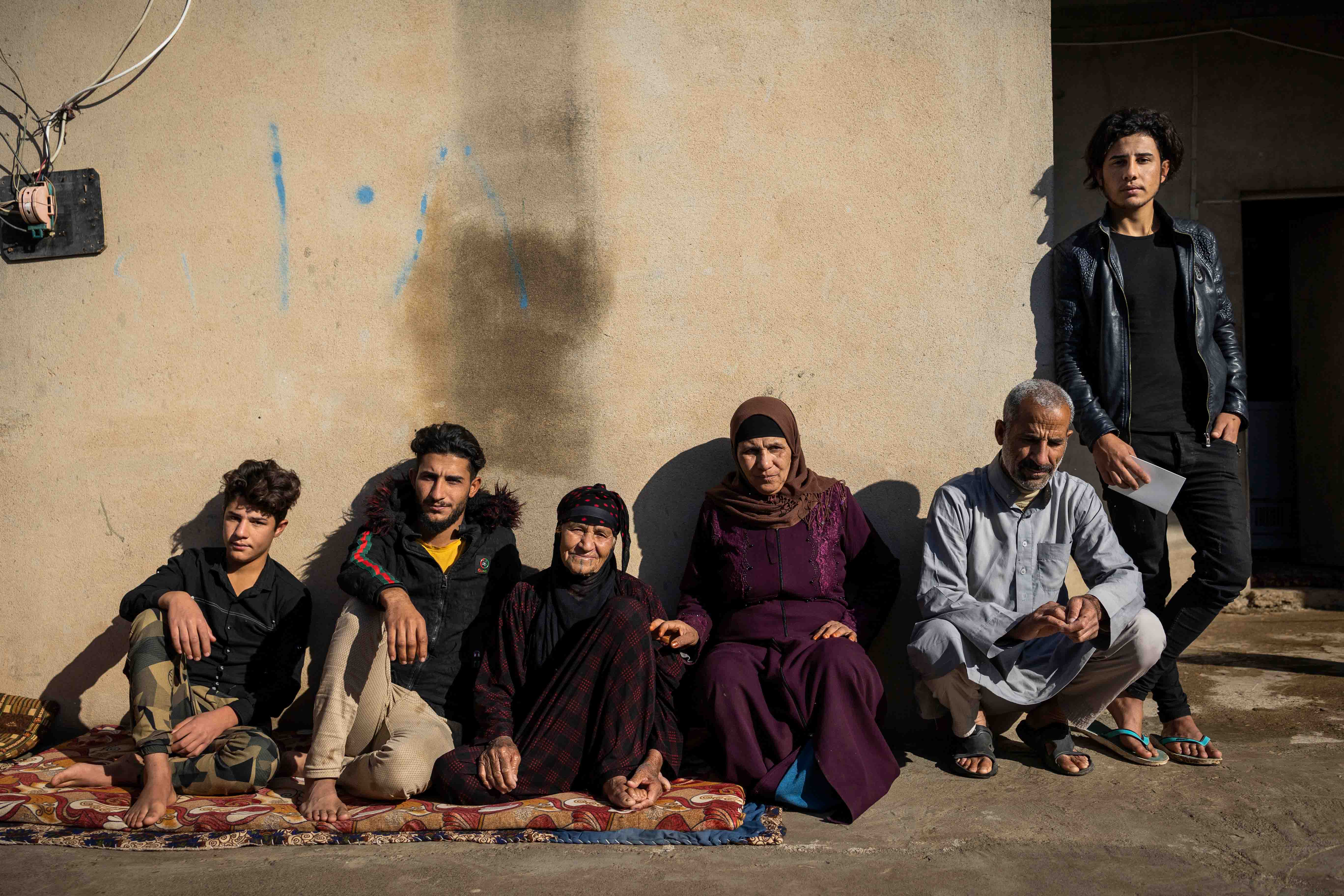
After the shock of her initial losses began to settle, Tahreer said she realized that the environment there was unhealthy for her and her children. She decided to make a fresh start.
In order to establish herself, Tahreer made the agonizing decision to leave her children for two years. When she came back to Mosul to work, few could have understood her circumstances better than Muhaya Idham Yousif, the owner of Al Yaqeen Food Production. Muhaya had also lost her husband and two sons in the war. She recognized the resilience that was motivating Tahreer to pursue a better life for her and her kids.
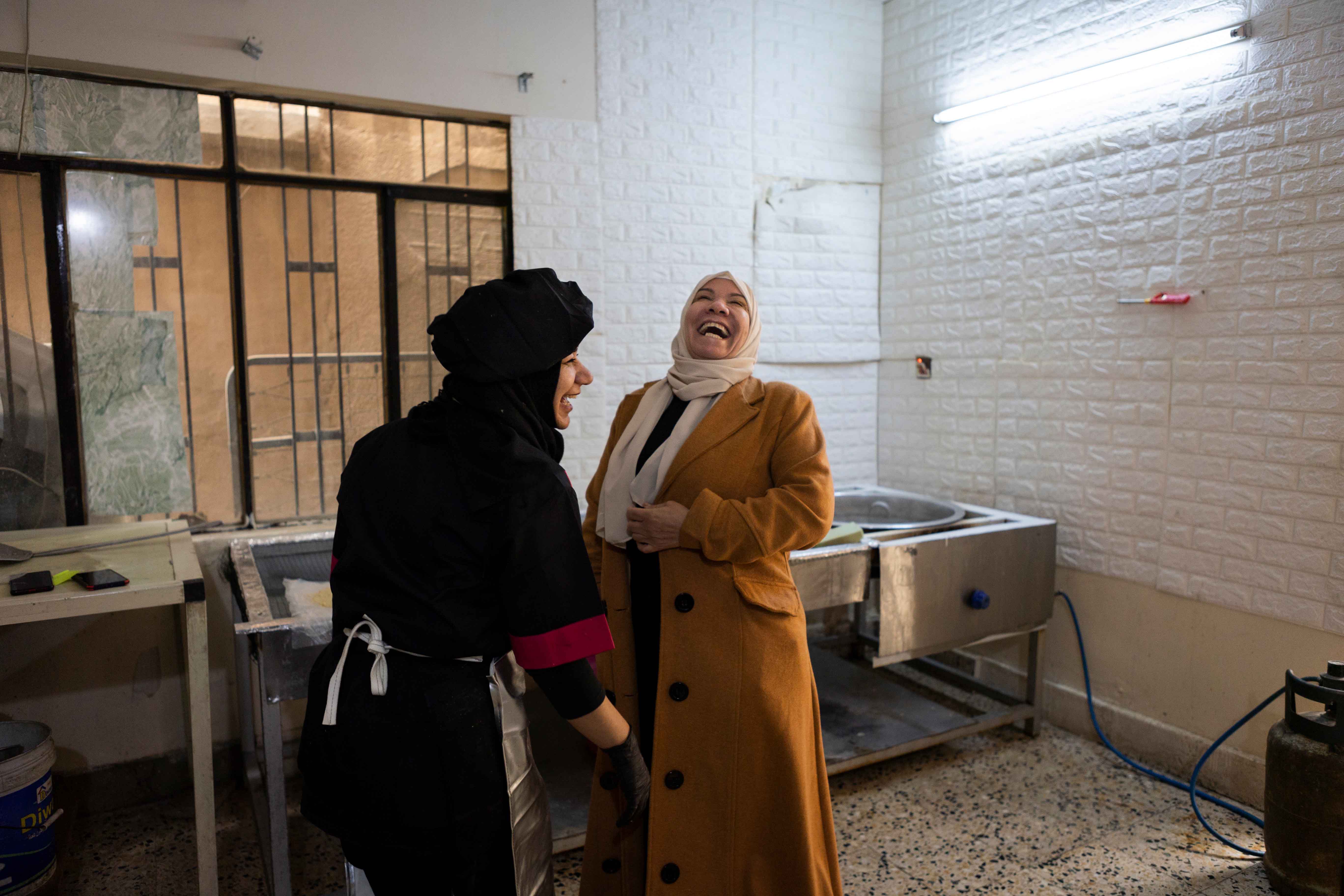
It was the same spirit of resistance that led Muhaya to establish her business in the wake of her losses, with the goal of employing women who were widowed or divorced.
So in addition to giving Tahreer a job in her kitchen, she also allowed her to stay in the vacant space above the business so that she could save her money and get her children back to Mosul. “When you go through a crisis, it strengthens you,” Muhaya said.” It teaches you to support and empower others too.”
As Tahreer rolled dough, Fasla Mahmood, 51, sat in the next room chopping vegetables for dolma.
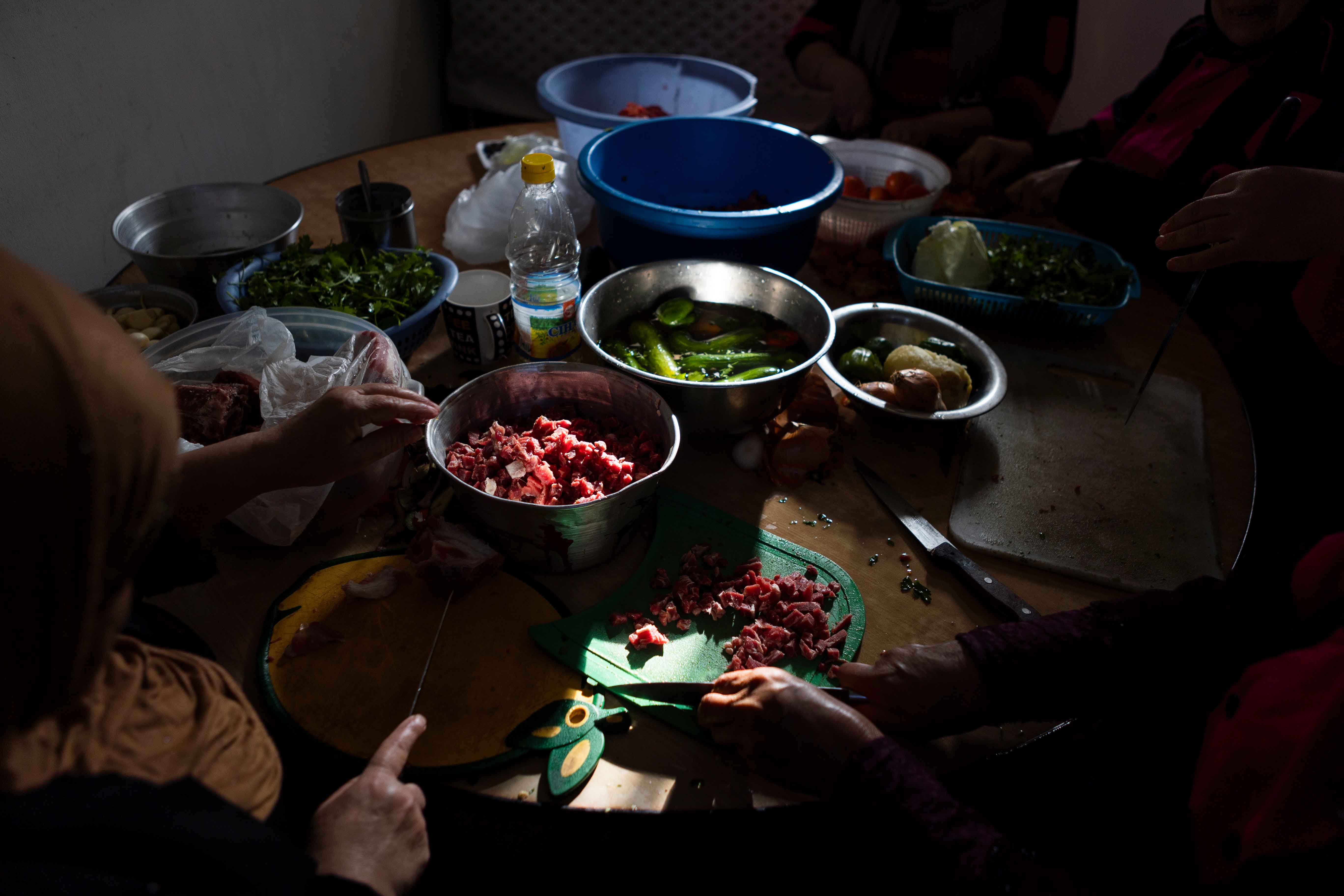
Fasla’s family was forced to flee their home in Dohuk nine years ago, after clashes broke out between ISIL and the Peshmerga.
She and her family lived in a camp briefly before relocating to the farm where they still live in exchange for agricultural labor. She said that neither her husband nor her four children have been able to find work outside the farm, so she came to the kitchen hoping to turn things around for her family. Fasla busied herself, hurriedly preparing the ingredients for recipes and then moving into the next room to sweep or do dishes, until the day ended.
After leaving Al Yaqeen Food Production, Fasla greeted her family exuberantly at their concrete home surrounded by lush kelly green fields. Sheep, geese, chickens, and ducks added to the serenade of insects with their various coos, clucks and bahs.
“This is not our house,” Said Fasla’s husband, Salim, solemnly. “We would like to go back to our village.” But the one time the family did try to return, they found their home destroyed with no hope of rehabilitation. Salim said he’s grateful for Fasla’s opportunity to work in the kitchen and bolster the family’s income. And he’s hopeful about what it could mean for the family’s ability to reestablish themselves.
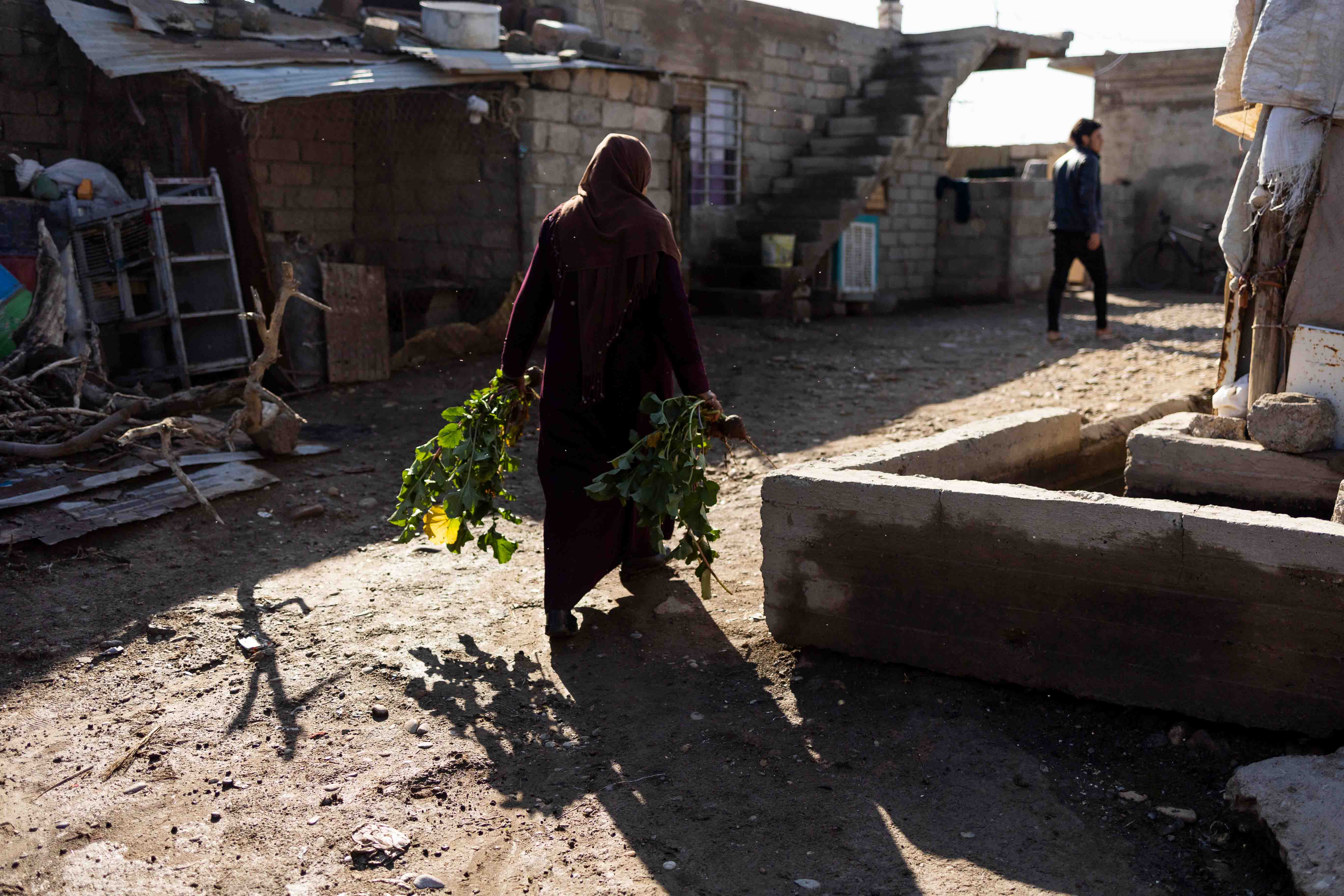
When Muhaya started building Al Yaqeen Food Production, like most female entrepreneurs in Iraq, she said that the biggest challenge she said was society itself. Women are discouraged from working in Iraq in general, let alone running a business. Muhaya knew how these societal norms can run against the needs of women who are the heads of their households. So she persevered. Recently, the business received an Enterprise Development Grant for $10,000, which allowed her to move the business to a larger location. She bought cookers and fridges and eventually hired more workers. Her kitchen has grown from two staff members to more than 20. Muhaya said she continues to find strength in the women she employs.
A year ago, after months of saving her paycheck and living above the kitchen at Al Yaqeen Food Production, Tahreer was finally able to get an apartment for family. Her 11 year-old daughter Rahaf goes to school during the day and her son sells appliances in Mosul while dreaming of opening his own barber shop.
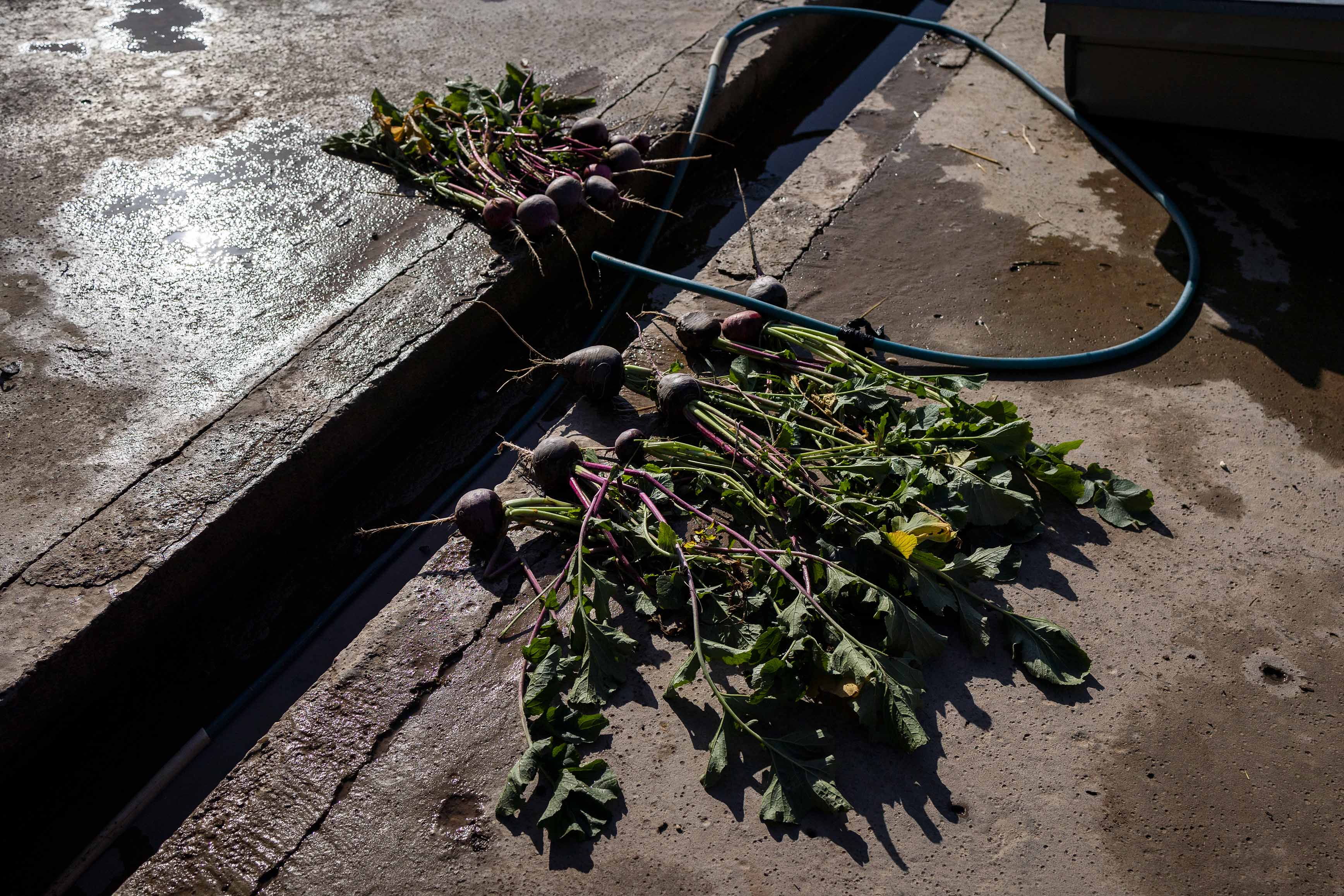
When Rahaf is home, she huddles up by a tiny space heater in the drafty apartment and draws pictures. Above her, a mural of iridescent circles hangs like a solar system—her brother taped the circles on the plain white wall to make the space feel more like a home.
Rahaf vows that she’ll never be separate from her mother again. Inside her drawing pad there are portraits of Iraqi women and doodles of her name. She lands on a page with two big yellow smiley faces—her and her mother—“I love you mama, my life,” she’s written beneath them.



